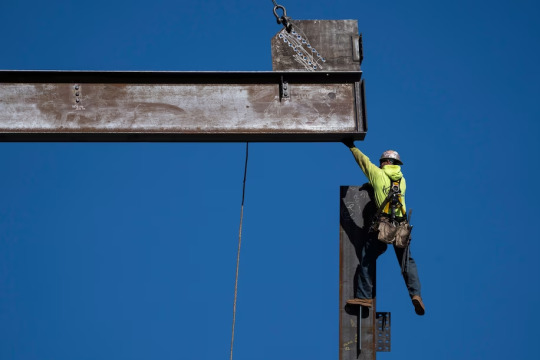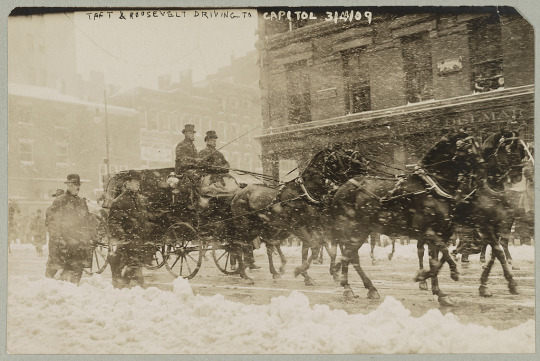#Washington Administration
Text
GEORGE WASHINGTON
•Washington: A Life by Ron Chernow (BOOK | KINDLE | AUDIO)
•His Excellency: George Washington by Joseph J. Ellis (BOOK | KINDLE | AUDIO)
•George Washington: A Life by Willard Sterne Randall (BOOK)
JOHN ADAMS
•John Adams by David McCullough (BOOK | KINDLE | AUDIO)
•Passionate Sage: The Character and Legacy of John Adams by Joseph J. Ellis (BOOK | KINDLE | AUDIO)
•John Adams: Party of One by James Grant (BOOK)
THOMAS JEFFERSON
•Thomas Jefferson: The Art of Power by Jon Meacham (BOOK | KINDLE | AUDIO)
•American Sphinx: The Character of Thomas Jefferson by Joseph J. Ellis (BOOK | KINDLE | AUDIO)
•Thomas Jefferson: An Intimate History by Fawn Brodie (BOOK)
JAMES MADISON
•The Three Lives of James Madison: Genius, Partisan, President by Noah Feldman (BOOK | KINDLE | AUDIO)
•James Madison: A Life Reconsidered by Lynne Cheney (BOOK | KINDLE | AUDIO)
•James Madison: A Biography by Ralph Ketcham (BOOK | AUDIO)
JAMES MONROE
•James Monroe: A Life by Tim McGrath (BOOK | KINDLE | AUDIO)
•The Last Founding Father: James Monroe and a Nation's Call to Greatness by Harlow Giles Unger (BOOK | KINDLE | AUDIO)
•James Monroe: The Quest for National Identity by Harry Ammon (BOOK)
JOHN QUINCY ADAMS
•John Quincy Adams: American Visionary by Fred Kaplan (BOOK | KINDLE | AUDIO)
•John Quincy Adams: A Public Life, A Private Life by Paul C. Nagel (BOOK | KINDLE | AUDIO)
•The Lost Founding Father: John Quincy Adams and the Transformation of American Politics by William J. Cooper (BOOK | KINDLE | AUDIO)
•The Remarkable Education of John Quincy Adams by Phyllis Lee Levin (BOOK | KINDLE)
ANDREW JACKSON
•American Lion: Andrew Jackson in the White House by Jon Meacham (BOOK | KINDLE | AUDIO)
•Andrew Jackson: His Life and Times by H.W. Brands (BOOK | KINDLE | AUDIO)
•Andrew Jackson, Volume I: The Course of American Empire, 1767-1821 by Robert V. Remini (BOOK)
•Andrew Jackson, Volume II: The Course of American Freedom, 1822-1832 by Robert V. Remini (BOOK | KINDLE)
•Andrew Jackson, Volume III: The Course of American Democracy, 1833-1845 by Robert V. Remini (BOOK)
MARTIN VAN BUREN
•Martin Van Buren and the American Political System by Donald B. Cole (BOOK | KINDLE)
•Martin Van Buren and the Emergence of American Popular Politics by Joel H. Silbey (BOOK)
•Martin Van Buren: The Romantic Age of American Politics by John Niven (BOOK)
WILLIAM HENRY HARRISON
•A Child of the Revolution: William Henry Harrison and His World, 1773-1798 by Hendrik Booraem V (BOOK | KINDLE)
•Mr. Jefferson's Hammer: William Henry Harrison and the Origins of American Indian Policy by Robert M. Owens (BOOK | KINDLE | AUDIO)
•The Carnival Campaign: How the Rollicking 1840 Campaign of "Tippecanoe and Tyler Too" Changed Presidential Elections Forever by Ronald G. Shafer (BOOK | KINDLE | AUDIO)
#Books#Books About Presidents#Presidents#Presidency#Book Suggestions#Book Recommendations#George Washington#President Washington#General Washington#Washington Administration#John Adams#President Adams#Adams Administration#Thomas Jefferson#President Jefferson#Jefferson Administration#James Madison#President Madison#Madison Administration#James Monroe#Monroe Administration#President Monroe#John Quincy Adams#JQA#President J.Q. Adams#J.Q. Adams Administration#Andrew Jackson#President Jackson#General Jackson#Jackson Administration
67 notes
·
View notes
Note
do you know how hamilton felt about the madison-hamilton fallout? just realized everything i know about it is from madison’s perspective
oho boy do i
This has actually been a subject of interest of mine since I read The Three Lives of James Madison by Noah Feldman (great book, highly recommend). In the study of Alexander Hamilton, this is a crucial event that would define his proceeding political actions.
For some background for those who may not know what anon is referencing, Alexander Hamilton and James Madison were colleagues and "friends" (if you could call it that) from their time in the Confederation Congress until Hamilton submitted his financial plan to Congress, which was all in all about a decade. In that time, they lobbied for a convention to revise the Articles of Confederation, worked together in the Constitutional Convention, and wrote The Federalist papers together in defense of strong federal government together. The Federalist was like the manifesto of the Federalist party, which placed Hamilton at the head of that party, and, arguably, James Madison as well, until he switched to the Democratic Republican party.
Hamilton's experience was far different from Madison's, just in general, but especially when it came to close friendships between men. The closest relationship he had before James Madison was with John Laurens, who we know died tragically in 1782. Although we are all aware of my feelings on rat bastard Ron Chernow, I thought that this excerpt of his biography of Hamilton described this point very well.
"[Laurens'] death deprived Hamilton of the political peer, the steadfast colleague, that he was to need in his tempestuous battles to consolidate the union. He would enjoy a brief collaboration with James Madison... But he was more of a solitary crusader without Laurens, lacking an intimate lifelong ally such as Madison and Jefferson found in each other," (Alexander Hamilton, Chernow 172-73)
As Chernow mentioned, James Madison was already closely associated with Thomas Jefferson, who he kept well appraised of the circumstances in America while Jefferson was serving a diplomatic position in France. In my personal opinion, I think it was largely due to this that Madison began to attack Hamilton later on, since as soon as Jefferson arrived back from Paris, Madison suddenly had severe moral oppositions to Hamilton's plan, rather than just rational apprehension.
I also want to touch on Hamilton's perspective in their friendship, along with their fallout, specifically when it comes to The Federalist. Hamilton put such a high value on his work, and he held himself to a very high standard. There are a couple instances of him outsourcing his work to other men he admired, such as his last political stance, that the truth of an accusation can be used in libel cases. He asked several men to help him in writing a larger treatise on the matter than what he was able to make (due to yk the bullet that got put in his diaphragm), but these weren't just his friends. These men were very crucial figures in American law, which shows that, unlike men like Jefferson, he was very selective in who he chose to associate with when it came to his work.
This wasn't any different in 1787. When he chose John Jay and James Madison to assist in writing The Federalist, his reasons for both had nothing to do with their personal relationships. Jay was one of the most successful legal minds of the new country, and James Madison, was not only a Virginian, but was an absolute genius and fucking workhorse. If you like him or not, or if you like the Constitution or not, its undeniable that the Virginia Plan was absolute fucking genius, and Hamilton knew that.
This also shows a great amount of trust in Madison. Hamilton was an incredibly untrusting dude. He kept most of his emotions and personality away from work, and really the only people who knew who he was entirely were close family, one or two family friends included. They were the only people who knew his background, which is directly tied into his work, which was the most important thing to him. Without his work, in his eyes, he would have nothing. So for him to trust Madison with something he and the world viewed as one of his most important contributions to American history, that was incredibly significant.
Also I should mention that Hamilton definitely knew how important The Federalist would be, and this is clear in his introductory essay, which is confirmed that he himself wrote.
One thing that any Hamilton historians will agree on is that he was so set in his ways. If there was a moral or philosophical question before him, he would think about it constantly, consult his books and his peers, and once he decided on his stance, there was little to no chance of changing that. The Federalist are, if not anything else, the basis of Hamilton's political thinking. Hamilton, being the arrogant bitch that he was, assumed that every other genius would be equally steadfast in their beliefs.
But James Madison was different in that regard. He was also very tied in with his state's interest, as well as that of the planter class. Hamilton also had a strong bias towards his state and class, but not with the same attitude as someone who was born into it.
Therefore, when Madison openly opposed his Report on Public Credit with a speech in the House of Representatives, Hamilton viewed it as a deep betrayal of his trust, his work, and his principles. Hamilton saw this as a devastating insult to everything he stood for by someone he thought he could completely rely on. This was the 18th century burn book.
That speech immediately kicked off Hamilton lobbying to oppose Madison's counter-proposal, which he won because, frankly, Madison hadn't been expecting Hamilton to immediately come at him with the full arsenal, but Hamilton didn't half-arsenal anything. It was after that that Hamilton was able to process what had happened. According to one of Hamilton's allies, Manasseh Cutler, Hamilton saw Madison's opposition as "a perfidious desertion of the principles which [Madison] was solemnly pledged to defend." Ouch.
The final break between them was on the subject of the National Bank aspect of Hamilton's plan. This is when Madison redefined himself as a Democratic-Republican with a firm belief in strict construction of the Constitution, giving Hamilton free reign to take out his hurt feelings on him through the art of pussy politics* and this entirely dissolved the friendship that had once been there.
*pussy politics (noun): a form of politics in which grown men act like pussies by only supporting the governmental actions that benefit their families/wealth/land/class/etc. and it is very embarrassing and frustrating to sit through
Hamilton would spend a large part of his career battling Madison, and talking a lot of shit about him, which is what has allowed me to paint this stupid ass picture of two grown men fighting over banks. The personal language that he uses in regards to Madison is very different to the accusatory tone he took with his other enemies, and that in it of itself says a lot, but I hope this was able to shed some light on why Hamilton felt the way he did and what exactly he felt. Again, I love talking about this, so feel free to ask follow up questions!
#alexander hamilton#history#amrev#american history#john laurens#james madison#the constitution#constitutional convention#the federalist papers#washington administration#hamilton's financial plan#asks
49 notes
·
View notes
Note
by washington never having kids of his own, were there ever rumors about him not sleeping with martha basically? because i know that at that time it'd me more easy for them to put the blame on Martha, but nevertheless, people could try to turn to this around to hurt his image saying he was a sodomite and everything (specially during the amrev)
and if they did, did it ever had any bad consequences to gwash?
Yes, actually. Many.
Although Washington was generally revered by many people, he had many political enemies, especially among the British, as you may imagine. During the Revolutionary War, British newspapers constantly insulted the Washingtons and made up wild rumors about them. Some of these were symbolic more than anything, not meant for anyone to take word for word, but others were used to attempt to persuade Americans against their beloved commander.
Blame was put on Martha, but they had virtually no information on her, so they had far more ammunition against Washington himself. And most of these accusations involved sodomy, if not stupidity and other forms of incompetence. The Journal of the American Revolution has compiled a list of Washington's alleged affairs. There is no proof, at least not that I have seen, to substantiate any of these.
The criticisms Washington received from the press later in his career don't seem to be as scandalous. After reading Mount Vernon's article on the press attacks against Washington during his presidency, it seems they were mostly civil. However, Jefferson did play a major role in this, and he famously called Adams a hermaphrodite, with both the physical traits of man and woman but the qualities of neither, so I won't make any claim that they were entirely PG.
However, these didn't really seem to have any kind of effect on Washington's overall reputation. This was most likely due to the fact that he never responded to these accusations publicly (unlike someone we know). He was known to be very self conscious about what the general populace thought of him, but he never let that show. He was very strict about his etiquette rules, and I think responding would go against most if not all of them. This basically swept most of the allegations under the rug, and implied that all of them, even if they had some truth, were false.
These blasphemous allegations appear in many different forms of media about Washington. For example, in the first episode of Turn: Washington's Spies, the fight in Strong Tavern is started by a newspaper referencing this kind of publishing, which is one of my favorite details because it did happen, and the crude humor is pretty historically accurate. Thanks for the ask!!
#george washington#amrev#american revolution#revolutionary war#history#american history#martha washington#washington administration#asks
46 notes
·
View notes
Text
George W. Bush, the infamously anti-gay and neoconservative former U.S. president who invaded Iraq on a lie, has criticized congressional Republicans for threatening to defund the U.S. President’s Emergency Plan for AIDS Relief (PEPFAR), a largely successful African HIV-prevention program that he launched back in 2003. “There is no program more pro-life” than PEPFAR, he wrote.
Though PEPFAR is estimated to have saved over 25 million lives, its funding is set to expire on September 30. Congressional Republicans are falsely claiming that the program promotes abortion and using its re-funding as a bargaining chip in budget negotiations. Republicans have threatened to defund the entire federal government at the end of the month unless they’re allowed to slash military diversity programs and military aid to Ukraine and to increase anti-immigration measures at the U.S.-Mexico border.
“We are on the verge of ending the HIV/AIDS epidemic. To abandon our commitment now would forfeit two decades of unimaginable progress and raise further questions about the worth of America’s word,” Bush wrote in a Wednesday opinion article in The Washington Post.
Bush said that his Secretary of State Condoleezza Rice, his White House chief of staff Joshua Bolton, and his senior policy advisor Michael Gerson had advised him to begin PEPFAR. Gerson reportedly told Bush that it would be “a source of national shame” if the U.S. didn’t try to help end the worldwide HIV epidemic.
Bush’s opinion article cited words that Gerson himself had written in defense of PEPFAR in November 2017: “Are Republicans in Congress prepared to squander a legacy of GOP leadership that has won the United States considerable goodwill around the world? Among evangelical Christians, what definition of being ‘pro-life’ does not include saving millions of lives from preventable disease and death?”
Adding his own thoughts, Bush wrote, “There is no program more pro-life than one which has saved more than 25 million lives. I urge Congress to reauthorize PEPFAR for another five years without delay.”
During his presidency, Bush backed a constitutional amendment against same-sex marriage, and used bans on same-sex marriage to help him win re-election in 2004. While he served, 27 states banned same-sex marriage.
Despite Bush’s anti-gay record, PEPFAR was “a sound investment in U.S. security,” Ben Plumley, the former CEO of the now-defunct international HIV organization Pangea, said in a now-deleted interview with Hornet.com. Plumley said the program “generated very significant goodwill towards the United States” and countered “the spread of radical Islam or radical anti-Western attitudes in sub-Saharan Africa.”
Plumley also noted that most HIV transmissions in sub-Saharan Africa are heterosexual, meaning that conservative Republicans could support PEPFAR without worrying about seeming too overtly supportive of the LGBTQ+ community.
#us politics#news#lgbtq nation#2023#republicans#conservatives#president george w. bush#U.S. President’s Emergency Plan for AIDS Relief#pepfar#hiv/aids#hiv/aids epidemic#africa#world politics#the washington post#Condoleezza Rice#Joshua Bolton#Michael Gerson#Ben Plumley#bush administration#Hornet.com#us congress#congressional Republicans
157 notes
·
View notes
Text
Falling inflation, rising growth give U.S. the world’s best recovery

The European economy, hobbled by unfamiliar weakness in Germany, is barely growing. China is struggling to recapture its sizzle. And Japan continues to disappoint.
But in the United States, it’s a different story. Here, despite lingering consumer angst over inflation, the surprisingly strong economy is outperforming all of its major trading partners.
Since 2020, the United States has powered through a once-in-a-century pandemic, the highest inflation in 40 years and fallout from two foreign wars. Now, after posting faster annual growth last year than in 2022, the U.S. economy is quashing fears of a new recession while offering lessons for future crisis-fighting.
“The U.S. has really come out of this into a place of strength and is moving forward like covid never happened,” said Claudia Sahm, a former Federal Reserve economist who now runs an eponymous consulting firm. “We earned this; it wasn’t just a fluke.”
On Friday, President Biden hailed fresh government data showing that annual inflation over the second half of 2023 fell back to the Federal Reserve’s 2 percent target. Coupled with Thursday’s news that the economy grew by 3.1 percent over the past 12 months, the Commerce Department report showed that the United States appears to have achieved an economic soft landing.
The post-pandemic recovery challenged long-standing economic beliefs, such as the idea of an inverse relationship between unemployment and inflation. (As one rose, the other was expected to fall.) Expressed in what economists call the Phillips curve, this nostrum proved nearly useless in explaining the economy’s recent behavior.
[...]
“Putting money in people’s hands vs. moving around interest rates, which is monetary policy, fiscal policy is going to be stronger,” Sahm said. “We cannot go into the next crisis being, like, ‘Oh, the Fed’s got this.’”
Consumer spending is driving the economy: Real consumption rose by 0.5 percent in December, its fastest pace since last January. Pending home sales jumped, too. Following the flurry of good news, JPMorgan Chase economists said they raised their first-quarter growth forecast.
Biden deserves credit for turning the economy around. This was a front page headline article on the WaPo website for a short time on Sunday Jan. 28th. I didn't see anything about this on The New York Times front page website. The mainstream media should do a better job of conveying this good news about the economy. Certainly, the right-wing media won't do so.
#us economy is booming#world economy#biden administration#inflation is coming down#david j lynch#the washington post
84 notes
·
View notes
Text
Hell. Yes.
[Demonstrators used bicycles and cars, with their hazard lights blinking, to block traffic around the port. Seven Indigenous warriors in a ceremonial canoe also circled the waters nearby to block the ship.
Patricia Gonzalez from the Water Warriors Council of the Puyallup Tribe said she was motivated to take to the sea because she relates to the Palestinians’ history with violence and displacement.]
#usa news#made in usa#usa#tacoma#washington#161#1312#joe biden#biden administration#biden crime family#hunter biden#biden#class war#environmental activism#activism#political activist#direct action#united states#unitedstateofamerica#free palestine#freepalastine🇵🇸#palestine#free gaza#gaza strip#gazaunderattack#save gaza#gaza#israel#israhell#benjamin netanyahu
39 notes
·
View notes
Text
I feel like entire Internet is trying to gaslight me into thinking cillian murphy is attractive

16 notes
·
View notes
Text

She's right 💀
#free gaza#free palestine#gaza strip#irish solidarity with palestine#palestine#gaza#news on gaza#al jazeera#boycott israel#israel#Rasha Mubarak#USA#Washington#Joe Biden#Biden Administration
20 notes
·
View notes
Photo

In a major setback for the Biden administration’s vaccination mandate, a federal judge has ruled that military brass cannot punish any Marine who refuses to receive the COVID-19 vaccine for religious reasons.
“U.S. Marines who filed for religious exemption and were denied, at least at the first level, are now protected,” Mat Staver, the founder of @LibertyCounsel.
Link: https://www.washingtonstand.com/news/oorah-marines-win-major-victory-over-bidens-vaccine-mandate
#The Washington Stand#USMC#Covid-19#Biden Administration#vaccination mandate#Federal Court#religious exemptions#washingtonstand.com
373 notes
·
View notes
Text

👆🏽I’M ASSUMING THIS IS THE NEW DIRECTION THE WHITE HOUSE IS TAKING PRE-ELECTION BECAUSE NO ONE IS BELIEVING THEIR BULLSH*T ..

Y’all can’t be this naive 👆🏽👆🏽

BIDEN IS ATTEMPTING TO BYPASS CONGRESS (like y’all said he couldn’t about minimum wage & student loans) HE IS CIRCUMVENTING CONGRESS TO PUSH THROUGH POLICY THAT WOULD ALLOW HIM TO CONTINUE TO PROVIDE ARMS TO WHILE CONCOCTING A NARRATIVE THAT HE IS POWERLESS TO STOP GEN0CIDE #diabolocal

#joe biden#biden administration#biden#the white house#america was never great#free palestine#free palestine 🇵🇸#gaza#gaza strip#free gaza#israel is a terrorist state#israeli apartheid#israeli war crimes#washington post#washington dc#threads#the U.S. is such a shit show
18 notes
·
View notes
Link
Another good commentary by Jennifer Rubin about how the mainstream media’s fear of being accused of “liberal bias,” overdependence on “historical trends,” the “professional cynicism” of the Beltway press, group think, and confirmation bias have repeatedly led to the MSM underestimating the economic and political performance of the Biden administration. Here are some excerpts:
Many in the mainstream media greeted news on Thursday of robust 2.9 percent economic growth in the fourth quarter of 2022 with surprise — shock even. And on Friday, there was more good economic news: Inflation rates dropped in December compared with November, the sixth straight month of declines.
These numbers were often characterized as defying expectations of a recession or despite economic head winds. The Wall Street Journal proclaimed that even though last quarter’s growth was solid, the U.S. economy “entered this year with less momentum as rising interest rates and still-high inflation weighed on demand.” Almost comically, the Associated Press wanted to know: “How will we know if the US economy is in a recession?”
The better question: When will the mainstream media recognize good economic news for what it is?
[...]
That is not to say the chance of some type of a recession is zero. Inflation is still high compared with a year ago, so the Federal Reserve will keep raising rates. A downturn is still possible. A potential default prompted by MAGA House brinkmanship could throw the economy out of kilter. But the certainty with which the mainstream media asserted for months that the United States was on the precipice of a recession seems wrong — and oddly familiar.
Akin to the red-wave midterm election that never happened, the media never seems to waiver from its gloomy predictions for the Biden administration. And its widespread refusal to give credit to the Fed and the administration even as good news came in has been notable.
Aside from the media’s predilection to stress negative news (due to the assumption that good news doesn’t attract as many eyeballs), there are several factors that might explain reporters’ willingness to buy into sky-is-falling predictions for Democrats.
First, the media remains deathly afraid of accusations of liberal bias. The constant course correction in the name of illusory “balance” leads to parroting right-wing talking points.
Second, the media is often a prisoner of historic trends. The first midterm always goes to the party out of power; the president’s poor ratings always mean bad news for his party; and a recession always follows a hike in interest rates. The problem is that “always” is rarely — if ever — accurate. (For example, Republicans under George W. Bush performed well in their first midterm elections.)
Moreover, things are different now. The pandemic and resulting recession is unlike any other economic event before it. And the cloud that Donald Trump has hung over his party has had a unique drag on Republicans in three consecutive elections. Sometimes, the past is no guide to the future.
Third, as with its premature obituary for Biden’s first term, the Beltway media covers the midterms and the economy as the permanent opposition to the White House. Certain that they are hearing spin from the White House, media members consistently refuse to give credit to the incumbent president and see themselves as professional cynics. If the White House says it is sunny outside, that must mean it is pouring.
Finally, group think is a perennial problem in the mainstream media. Reporters and editors circulate from one outlet to another; no one wants to be too far out of the consensus; and too many political reporters see everything through the prism of partisan horse-race politics.
All of these factors contribute to confirmation bias. The media starts with an assumption, sifting out contrary data and doubling down on facts that seem “right.”
The solution? More diversity in newsrooms. More expertise in areas other than politics. Less cringing over the threat of attacks from the right and less unstinting negativity. These changes would serve the media and the country well.
[emphasis added]
72 notes
·
View notes
Text

President Theodore Roosevelt and President-elect William Howard Taft en route to the U.S. Capitol for Taft's Inauguration, March 4, 1909.
Over ten inches of snow fell on Washington, D.C. on Inauguration Day, leading to the Inaugural ceremonies being moved indoors from the East Portico of the U.S. Capitol. Chief Justice Melville W. Fuller administered the oath of office to Taft inside the Senate Chamber.
#History#Presidents#William Howard Taft#President Taft#Taft Administration#Theodore Roosevelt#President Roosevelt#Inauguration of William Howard Taft#Taft Inauguration#Presidency#Presidential Inaugurations#Inaugural Ceremonies#Presidential History#Politics#U.S. Capitol#Chief Justice Fuller#Melville W. Fuller#Washington D.C.
21 notes
·
View notes
Note
i heard washington was willing to give madison a bureaucratic position should he fail the house race in 1789—what do you think his politics would’ve been like if he was a member of the executive?
This is a really interesting question!! I don't think it would be very different.
So, firstly, the reason Madison wasn't considered seriously by Washington was because Washington had learned through his war experiences that giving appointments based off of seniority was very crucial to not upsetting very influential people, which is why the War and State departments went to General Henry Knox and Thomas Jefferson respectively, and Hamilton was not the first contender for Treasury Secretary. Knox would later get upset whenever Hamilton was selected for assignments before him, further demonstrating the importance of seniority.
Madison, though we know him as the fourth president and a prestigious southern landowner, did not have that kind of reputation in 1789, obviously. In the 1780s, he was still a rising star, and didn't have a whole lot of publicity in his toolbelt. He served in state committees, but only had two national positions, in the Philadelphia Convention (which was temporary) and in the Confederation Congress (but he wasn't particularly important there). While Washington respected him greatly and Jefferson was his friend, he couldn't give him a major appointment, such as being one of his ministers, without offending SOMEONE.
To get into your question, I think his politics would really depend on what department he was in charge of. We can eliminate Treasury because he didn't have any economic qualifications, and while Washington was not aware of Hamilton's financial skills when he appointed him, he intimately knew that Hamilton could manage a department, including the financial aspects. Madison was not particularly managerial, so Hamilton was more qualified in that respect, even though their experience levels were the same in Washington's perspective. And ofc, James Madison didn't know shit about war (i mean, look at how the War of 1812 went. yikes!)
Source: His Excellency: George Washington by Joseph J. Ellis
So this leaves the State department and Attorney General. Personally, I think Madison would only really qualify for the latter, since the only diplomatic experience he had was within the United States with the natives. However, Madison was an accomplished lawyer and the largest legal issues at this time concerned the Constitution, which Madison was THE expert of, as the author of the Virginia Plan and the most influential Federalist papers (according to Ellis, Washington was aware of the authors of The Federalist, I don't see how this is possible, but it is to Madison's credit.
Source: The Three Lives of James Madison by Noah Feldman, His Excellency: George Washington by Joseph J. Ellis
Madison's legal career began with the defense of freedom of religion, which we can see in the Constitution, and consistently throughout his life. This is definitely a hill he'd die on, and he was very well educated on it. Basically, just look at the Bill of Rights ("which i wrote/the ink hasn't dried"), and you can see, for the most part, Madison's key beliefs. ACTUALLY i recommend reading the original draft of the Bill of Rights because you can get a more clear picture of what Madison believed should be specified in the Constitution.
Source: The National Archives
Ron Chernow is gonna get mad at me but i KNOW, I KNOW, that Thomas Jefferson was a major influence on Madison's views in the 1790s. "Well, Jefferson wasn't even in America when Madison betrayed Hamilton" I DONT GIVE A RATS ASS RON, EVER HEARD OF A FUCKING LETTER, YOU ANCIENT BITCH?! News flash, this isn't ancient fucking Greece, you can WRITE LETTERS TO PEOPLE IN FRANCE FROM NEW YORK IN 1790 YOU DUMB ASS. Anyway.
Jefferson was a political radical (shocker! he never stopped being absolutely insane), and he definitely pushed Madison. I talked about this in my post about their relationship, however, I want to emphasize that Jefferson did have a perceivable influence on Madison's opinions, and you can see it in their correspondence. And, yes, Jefferson was a manipulative person, but he was also a fellow Virginian who took states' rights very seriously. I think that was the most influential aspect on Madison, was that someone from his home state was in his ear telling him how much injustice was being done to people from his native region, and how he should be fighting back against that. When we see Madison in the executive, he quickly realizes why Washington and Hamilton and the other guys that were in executive positions during the Revolution were Federalists. He struggled so much in 1812, because you cannot wage a war on an united platform, and thats what he and Washington had in common.
It seems like, from this perspective, that if Madison were Attorney General, or even a Secretary, he'd have that realization sooner. I don't think so. If Hamilton, in his hypothetical, was not Secretary of the Treasury, maybe he would, and maybe he'd remain a Federalist, since it was Hamilton's financial plan that caused Madison's switch in political party, but if Hamilton was still Treasury Secretary, Madison would still switch. Hamilton's Report on Public Credit said "fuck you we need to fix this crisis, facts over feelings" to states' rights activists, and Madison and Jefferson took that as a personal attack.
Source: Alexander Hamilton by Ron Chernow
To wrap things up, Madison's core values would not change, and a position in the executive would give him more of a platform to implement them, and that might have affected the judicial reforms around the turn of the century, but I really don't think we'd see a huge jump. Thank you for your question!
#alexander hamilton#history#amrev#thomas jefferson#american history#george washington#james madison#1790s#washington administration#1700s#18th century#american revolution#asks
23 notes
·
View notes
Note
Heyy bestie, any notable events or things that happened with Hamilton or Elizabeth between 1795-1797? Political matters or family matters? I'm trying to set up a timeline for my fanfic thanksddd <3
aw geez i haven’t gotten to that point in Hamilton’s biography or in my reading of his papers. however!! i will do my best
so during that time, there was a lot of politics going on. there was the whole xyz affair, the french revolution were fucking shit up (refer to the adams post for details on the quasi war bc i cant remember shit), also the barbary pirates were there but not too big of a problem yet. for hamilton specifically, i think he had already joined the us army as second in command under washington and his beef with adams was heating up. also jefferson and adams were arguing. the alien and sedition acts came about around this time. also look into citizen genet bc i think he might have existed in this time frame. there was also a LOT of lawmaking in the late 1790s bc partisan politics were the worst they’ve been (comparatively speaking, it’s basically just the birth of modern american politics) and hamilton’s political career was on the verge of its downturn (as the kids say, he was about to go into his flop era)
as for his personal life, its hard to say, bc its overshadowed by politics. he would likely be working on philip 1’s education, and eliza’s priorities would be keeping relations with other influential families. i do believe it was during this time that eliza had her miscarriage, but im not sure. i know it was in the 90s. this was a very significant event. in 1797, angelica visited. also i believe this is when hamilton and angelica spent their time playing music together.
other than that, im not really sure. other things to keep in mind is that this is during the washington administration, so hamilton was very influential and very busy. im not great on the timeline, so this all might not be entirely accurate, so fact check me before you say anything for sure HAKWHWK
still, all this is relevant to the time. if anything, some of the things i listed were a few years later, but were in the making during this time, and hamilton was involved in everything. i hope this helps, it’s late for me and i have a busy day tomorrow and i don’t want to leave you hanging <333
7 notes
·
View notes
Photo










Milwaukee Handicraft Monday
The Milwaukee Handicraft Project (MHP) of the Wisconsin WPA produced several block-printed and handbound books for children in the late 1930s. Among them was this title, At the Zoo, A Book of Block-Prints, with blocks cut by Milwaukee-area artist Kendrick Bell (1913-2004) and the book printed and bound by specially-trained, but formerly unemployed and unskilled Milwaukee-area women laborers. The MHP was highly successful at hiring and training around 5,000 people in total throughout its seven year existence during the Great Depression.
At the Zoo is about animals at the Washington Park Zoo, situated on land designed by famed American landscape architect Frederick Law Olmsted. The zoo opened in 1892, but by the time this book was produced, the park had become a little worse for wear. Planning for a newly-designed zoo began in 1942, and fundraising began in earnest in 1956. The new zoo opened in 1958 as the Milwaukee County Zoo, which is still in operation today. Perhaps its most famous resident was Samson (1949–1981), a male silverback western lowland gorilla. Today the zoo is known for several exhibits, but it is perhaps most well-known for the visitor-favorite Humboldt Penguin Pool at the zoo’s main entrance, and for its population of bonobos, the largest outside their native home in the Congo.
Shown here are a few of the animals Kendrick Bell would have encountered at the zoo in the late 1930s, although we think Old Mr. Leopard gets a bad rap!

View more posts about MHP and the Wisconsin Arts Projects of the WPA.
#Milwaukee Handicraft Monday#Milwaukee Handicraft Project#Works Progress Administration#WPA#block prints#Kendrick Bell#At the Zoo#animals#poetry#Washington Park Zoo#Milwaukee County Zoo#children's books#women workers#Historical Curriculum Collection
99 notes
·
View notes
Text
Opinion | The GOP tax plan is to let the rich pay less and make you pay more
By Jennifer Rubin
President Biden, consistent with his idea of building an economy from “the bottom up and the middle out,” has tried to get the rich and big corporations to pay more taxes. The MAGA GOP, abandoning all pretense of populism, has a scheme to junk the progressive tax code and replace it with a national sales tax, with devastating results for the middle class.
That tells you a lot about the contrasting visions of the two parties. One still fights for the little guy in practical, concrete terms while the other proposes one harebrained scheme after another with no regard to the needs of average Americans.
Biden’s American Rescue Plan expanded the child tax credit for a year and permanently made it fully refundable, meaning that parents receive the money regardless of how much they owe in taxes. Keeping his promises not to raise taxes on anyone making less than $400,000 a year and to get businesses to pay more, Biden raised $300 billion in revenue in the Inflation Reduction Act by placing a new tax on stock buybacks and enacting a minimum tax on big corporations. To the chagrin of tax cheats (and their sympathetic Republican politicians), the law also boosted funding for the Internal Revenue Service to crack down on tax evaders.
None of these were radical changes in the code. More far-reaching plans to increase the individual top marginal tax rate, to boost the corporate tax rate, to equalize tax treatment of capital gains and ordinary income for those making more than $400,000, and to eliminate the step-up basis for the estate tax never passed.
The principle underlying all of these measures, which would be comparatively small adjustments that would not hit the vast majority of Americans, was simple: The rich have made out very well and should pay more taxes; working- and middle-class taxpayers shouldn’t.
“Over the past 40 years, the wealthy have gotten wealthier, and too many corporations have lost their sense of responsibility to their workers, their communities and the country,” Biden said in a speech in September 2021. “CEOs used to make about 20 times the average worker in the company that they ran. Today, they make more than 350 times what the average worker in their corporation makes.” He added, “Since the pandemic began, billionaires have seen their wealth go up by $1.8 trillion. That is, everyone who was a billionaire before the pandemic began, the total accumulated wealth beyond the billions they already had has gone up by $1.8 trillion.”
That grotesque widening of income inequality offends most Americans, who consistently tell pollsters the rich should pay more.
GOP politicians and their wealthy donors see things differently. The first tax measure proposed by the MAGA House was to try to take back funding for the IRS to chase down tax cheats.
“The debate should focus on one accurate and alarming number: the IRS has 2,284 fewer skilled auditors to handle the sophisticated returns of wealthy taxpayers than it did in 1954,” Chuck Marr of the Center on Budget and Policy Priorities wrote. “The decade-long, House Republican-driven budget cuts have created dysfunction at the IRS, where relatively few millionaires are now audited.”
But allowing tax cheats to avoid paying what they legally owe is not the sum total of the GOP thinking on taxes. “As part of his deal to become House Speaker,” Semafor reported, “Kevin McCarthy reportedly promised his party’s conservative hardliners a vote on legislation that would scrap the entire American tax code and replace it with a jumbo-sized national sales tax.”
A mammoth 30% sales tax would be grossly regressive, socking it to the same working- and middle-class families Republicans ostensibly worry are paying more at the pump and grocery store because of inflation.
You know the idea is rotten when Grover Norquist, the head of Americans for Tax Reform, blasted the move. He told Semafor: “This is a political gift to Biden and the Democrats.” Even Norquist knows that because the poor and middle class spend a much higher percentage of their income on necessities such as food and clothing, the impact would be devastating.
Unsurprisingly Democrats leaped at the chance to blast the scheme. Sen. Elizabeth Warren (D-Mass.) tweeted:

Biden also hammered Republicans: “National sales tax, that’s a great idea. It would raise taxes on the middle class by taxing thousands of everyday items from groceries to gas, while cutting taxes for the wealthiest Americans.”
The GOP plan boils down to this: Let rich tax cheats get away with not paying what they owe while redoing the entire tax system so the overwhelming burden will fall on those less able to pay. Genius! Well, if you are a Democrat running in 2024.
The plan is unlikely even to get a vote. But it is indicative of the utter lack of seriousness that pervades the GOP. They throw out one boneheaded idea after another, hoping to please some segment of their base or donors, with nary a care in the world for the needs of their constituents nor for the actual challenges we face.
#us politics#news#the washington post#op eds#Jennifer Rubin#president joe biden#biden administration#american rescue plan#inflation reduction act#taxes#us tax code#federal tax codes#internal revenue service#Chuck Marr#Center on Budget and Policy Priorities#Semafor#rep. kevin mccarthy#Grover Norquist#sen. elizabeth warren#tweet#twitter#the white house#2023#118th congress#us house of representatives#conservatives#republicans#gop policy#gop platform#gop
89 notes
·
View notes